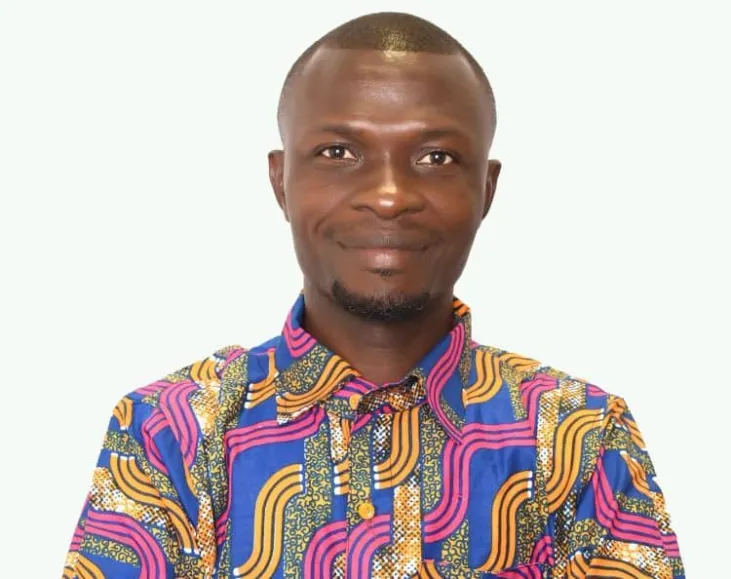
On that partly cloudy but dark day, Carlos Calony and the cameraman of JoyNews of the Multimedia Group calmly carried their camera, mic and phones to carry the news on the ongoing “deconstruction” of the warehouse on a disputed land on the Spintex Road.
Little did they know that they, rather than transmitting the news, would become the news. The news makers are now the news themselves.
A soldier decided to change the ideal order to make the reporter the news. Beaten, arrested, removed from the scene and driven to a detention-house.
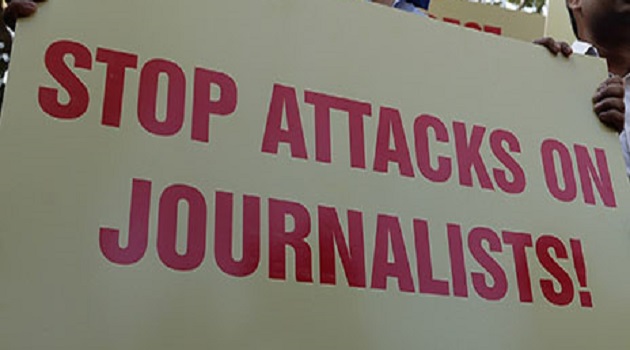
What was Mr. Calony’s crime?
The dictionary defines crime as ” an action or omission which constitutes an offence and is punishable by law.”
Detailed breakdown: Action or Omission:
Crimes can be actions taken (like stealing).
Against the Law:
A key element is that the action or omission must be prohibited by law, whether it’s a statute, a regulation, or common law.
Harm or Damage :
Crimes often involve causing harm to someone (e.g., assault), damaging property (e.g., vandalism), or causing loss to someone (e.g., theft).
Punishment:
The legal system provides for punishments for crimes, ranging from fines and community service (in some jurisdictions) to imprisonment.
So I ask, what was Mr. Calony’s crime? And what were the legal parameters for the uniformed officer to take the law into his own hands?
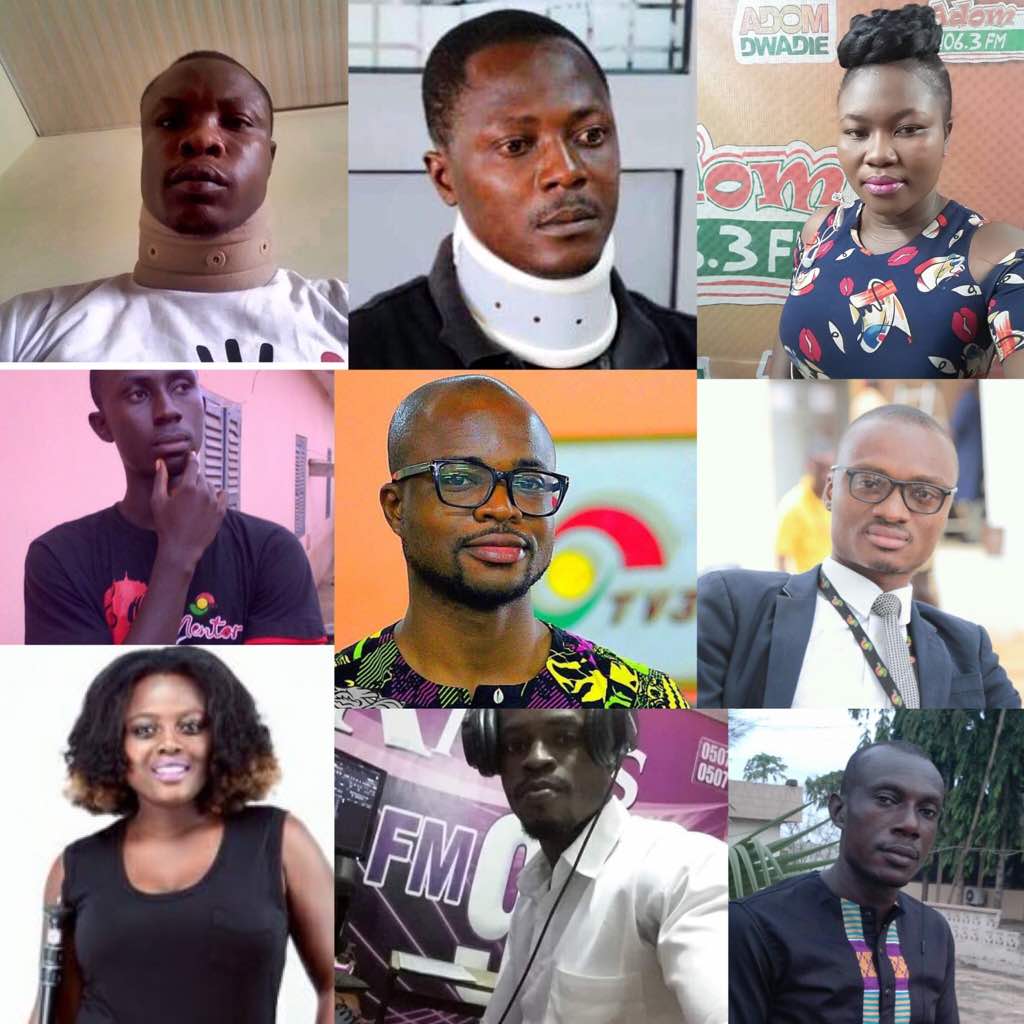
Journalism: Never a Crime
From dawn to dusk every day, the Ghanaian journalists labour to fulfil three cardinal constitutionally guaranteed duties: inform, educate and entertain.
All in a business of contributing their quota to the building of a beautiful and progressive Ghana that all well-meaning citizens envisioned.
In the beautiful tapestry of Ghanaian life, the journalist stands, not as an intruder, but as a critical thread, weaving the narratives that glue society together.
Ours is an ancestral, present generational and futuristic sacred trust, a commitment to illuminate the hidden corners, to give voice to the voiceless, and to hold the powerful accountable under the journalistic microscope.

Yet, the ink that flows from our pens, the words that wiggle across digital screens and platforms, have in most instances been met with chilling responses.
So, I ask what is the crime?
The very hands that seek to inform, to educate, to empower, have been met with cuffs of iron, the open, computers, and microphones silenced by fear, the quest for truth obstructed by the shadows of impunity.
At the very point Mr. Calony’s cameraman’s camera was on the floor it was recording ‘nothing’… the journalist’s only weapon has fallen.
With the fallen weapon, the attacker had the temerity to commit his crime.
We have on countless times comforted ourselves with the saying ‘Never Again’. But the callous in society continue to remove the ‘never’ and use the again and again, unabated.
This is not the Ghana we envision. This is not the promise etched in the hearts of forefathers.
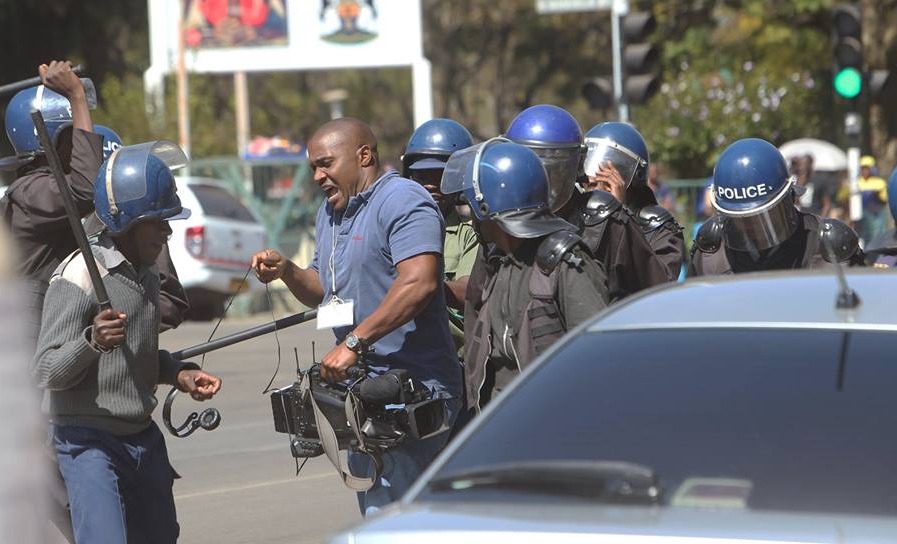
For a nation to truly thrive, its citizens must be nourished by the unadulterated truth, a truth that blossoms in the fertile ground of a free press and media.
Journalism is not a crime; it is the very lifeblood and oxygen of a healthy democracy, the sentinel guarding against the encroaching darkness of misinformation and injustice.
A society that stifles its journalists, that treats their pursuit of truth as an act of transgression, diminishes itself. It blinds itself to its flaws, hindering its capacity for growth and self-correction.
May the dark pages of our history remind us that the suppression of information is the first act of tyranny.
The journalists are not the enemy; they are the allies of the people, the unwavering eyes that scrutinise power, ensuring that the scales of justice remain balanced.
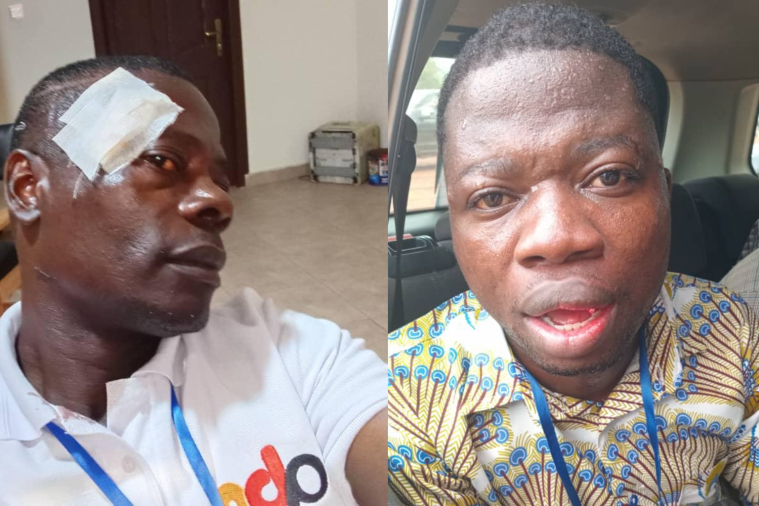
The Blow of Impunity: A Cry from the Heart
The cold grip of unlawful arrest, the physical and psychological attacks, the insidious threat of online harassment- these are the weapons wielded against those who dare to speak truth to power.
Each assault on a journalist in Ghana is not merely an attack on an individual; it is a blatant assault on the fundamental right of every Ghanaian to be informed. It is a tear in the very fabric of our democratic ideals.
The impunity with which these attacks are often carried out casts a long and ominous shadow. When those who violate the sanctity of the press are not held accountable, a dangerous precedent is set.
It fosters a climate of fear, where journalists are forced to self-censor, where crucial stories remain untold, and where the public is left to navigate a landscape riddled with half-truths and veiled agendas.
The emotional toll on these brave individual journalists is immense.

Journalists step out each day, armed only with their notebooks, phones, cameras and recorders, knowing their pursuit of truth could lead to physical harm, to the disruption of their livelihoods, to the anguish of their families.
Yet, they persevere, driven by an unwavering commitment to their profession, to their nation, and to the fundamental human right to know. Our courage should be met with protection, not persecution.
We cannot forget the harrowing assault on Latiff Iddrisu of the Multimedia Group, viciously beaten for simply doing his job. Or the brazen attack on Emmanuel Ajafor Abugri, threatened and unlawfully detained while investigating a story and the EIB Network’s Journalist, Kwabena Banahene, was slapped by a senior police officer. The list goes on and on.
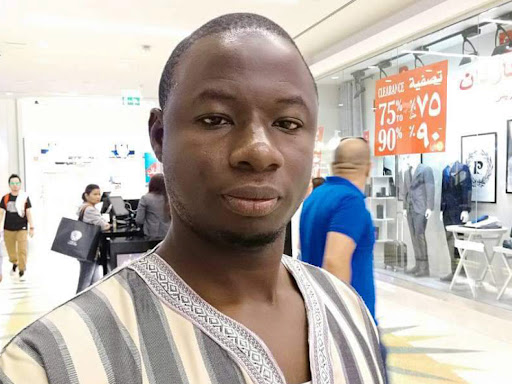
This year alone about 12 Journalists suffered harrowing attacks in Ghana.
These are not isolated incidents; they are wounds on the collective soul of our nation.
Every time a journalist is attacked and the perpetrators walk free, a negative message is sent that truth can be silenced, that accountability can be evaded.
Let the spirit of ‘Ubuntu’ guide our actions. An attack on one is an attack on all. When the voice of a journalist is stifled, a part of our collective voice is lost.
A Call to Courage, A Pledge for Protection: A Spiritual Plea
The time for silence is over. The time for complacency is past.
The vibrant drumbeat of Ghanaian democracy demands that we rise and defend the guardians of truth.
We must collectively amplify the voices of journalists, ensuring their safety and empowering them to continue their vital work without fear of reprisal.
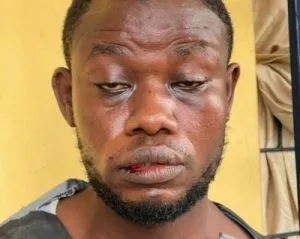
To our brothers and sisters in the security agencies, we say this with utmost respect and unwavering hope: recognise the crucial role of a free media in a democratic society.
See journalists not as threats, but as essential partners in the pursuit of a just and equitable Ghana.
Your duty to protect extends to them, just as it extends to every citizen.
Hold yourselves to the highest standards of professionalism and accountability.
Investigate every attack on a journalist thoroughly and impartially, ensuring that justice is served swiftly and unequivocally.
To our fellow citizens, let us become active participants in safeguarding press freedom.
Let us demand transparency and accountability from our leaders.
Let us use our voices, in whatever way we can, to support and protect the journalists who risk their safety to keep us informed. Share their stories, defend their integrity, and challenge any attempt to silence or intimidate them.

To the journalists of Ghana, your courage in the face of adversity is an inspiration. Continue to shine your light on the truth, to hold power accountable, and to give voice to the marginalised. Know that you are not alone in this struggle. We stand with you.
Let the world witness a Ghana where the pen is mightier than the sword, where the pursuit of truth is celebrated and protected, not punished.
Let us build a nation where journalism is not a crime, but a cornerstone of our democracy, a beacon of hope, and a testament to the enduring power of information in shaping a brighter future for all.
By Dominic Hlordzi
General Secretary, GJA








